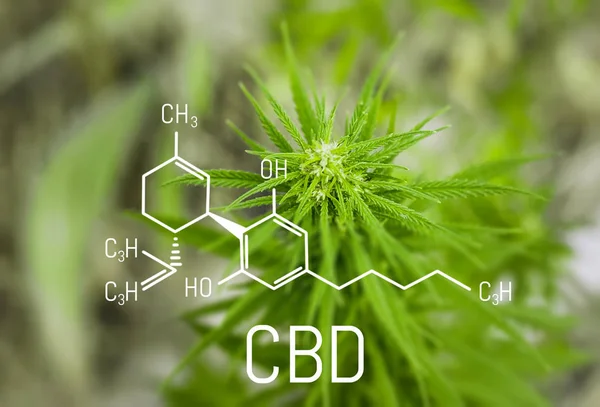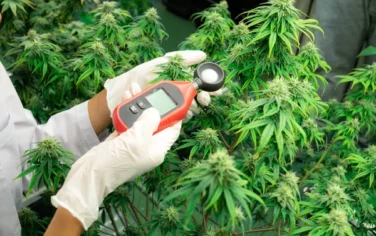Hemp and CBD: Separating Fact from Fiction Regarding Therapeutic Properties

November 21, 2024
Introduction
In recent years, there has been a surge in interest in the medical potential of cannabidiol (CBD), derived from hemp. This became possible thanks to the enactment of the Agriculture Improvement Act of 2018 in the USA, which legalized the cultivation of industrial hemp – a plant rich in CBD. Hemp is valued as a cash crop for the production of biofuel, textiles, and animal feed. However, CBD extracted from it also has medicinal properties with the potential to help millions of people in treating various disorders.
Differences Between Hemp and Marijuana
Hemp and marijuana belong to the same species, Cannabis sativa, but they have different chemistry and effects. Marijuana contains THC, which causes the characteristic psychoactive effect. Hemp, on the other hand, has virtually no THC, and neither it nor the CBD extracted from it can cause intoxication. This important distinction has allowed hemp to be legalized, despite previous resistance due to its association with marijuana.
Scientific Data on CBD Properties
Although the research is promising, caution is needed in concluding the benefits of CBD. There is not enough rigorous scientific data yet, so the marketing of CBD products should not precede research and evidence.
The main issue is that science has not yet determined the optimal forms, doses, and indications for using CBD. It can be used as either a pure substance or a complex mixture in oil, in the form of ointments, chewable tablets, capsules, or tinctures. Clinical trials are needed to develop clear recommendations for each medical condition.
Meanwhile, the market portrays CBD as a cure-all for almost all diseases – from insomnia and anxiety to cancer and heart diseases. Unfortunately, there is little rigorous scientific evidence to support many of these claims, with most of the existing research done on animal models rather than humans. CBD is not a remedy for all ailments.
Proven Benefits of CBD
Trials have convincingly demonstrated the effectiveness and safety of CBD in treating certain forms of epilepsy in children, in particular, Lennox-Gastaut and Dravet syndromes. In 2018, the FDA approved the drug Epidiolex (purified CBD) for use in these diseases. It can reduce the frequency of seizures by more than 25%, and in 5% of children lead to their complete cessation.
CBD is considered a “promiscuous” drug, meaning it is potentially effective in a number of conditions due to its impact on different processes in the body. Currently, more than 200 trials are evaluating its benefits for chronic pain, addictions, anxiety, and arthritis.
CBD appears to have anti-inflammatory and analgesic effects, similar to aspirin. This makes it promising for treating inflammatory pains, such as arthritis, headaches, and muscle pains.
The potential of CBD in oncology is twofold. Firstly, there is evidence of its ability to directly destroy cancer cells in addition to traditional therapy. Secondly, CBD may improve the well-being and quality of life of cancer patients by reducing pain and anxiety. However, it has not yet been approved for use in oncology.
Risks of Unregulated CBD Products
Prescription CBD is safe, but other forms, especially oils, come with risks. The CBD oil market is unregulated, with no requirements for their composition and quality.
Many manufacturers’ claims about the properties of oils are not scientifically substantiated. An analysis of 21 samples of such products showed that almost all did not contain the advertised amount of CBD, and in 13 it was extremely low or not present at all. Moreover, many contained THC, which should not have been present.
Studies have revealed weak control of contaminants in over-the-counter CBD products. The FDA has issued dozens of warnings to companies promoting such unauthorized products. Consumers should be aware of the risks of unknown impurities and interactions with prescription medications.
Urgent Need for CBD Market Regulation
In January 2023, the FDA acknowledged that existing norms are not suitable for regulating CBD. The agency plans to collaborate with Congress to develop new rules that balance product accessibility and risk control.
CBD is a natural substance but acts like a drug, similar to aspirin, paracetamol, or chemotherapy. Healthcare professionals need a clear understanding of its associated risks and benefits.
CBD may interact with the body unexpectedly. It is metabolized by the same liver enzymes that remove many medications: anticoagulants, antidepressants, immunosuppressants. Therefore, adding CBD oil without consulting a doctor can disrupt the action of prescription drugs.
To prevent unwanted interactions, a free online application, CANNabinoid Drug Interaction Resource, has been developed. It predicts the potential impact of CBD on other medications. Doctors strongly advise informing healthcare professionals about both over-the-counter CBD intake and recreational or medical marijuana use.
Conclusion
CBD will surely find its place in medicine, but only after scientists establish the optimal forms, dosages, and indications for specific diseases. The market should follow science, not precede it. Only evidence-based recommendations from specialists will unlock the true potential of this natural compound for the benefit of people’s health.
Other News

Introduction: A New Era of Investment Opportunities 2025 ushers in unprecedented opportunities for investors in the rapidly growing medical cannabis sector. According to Grand View Research, the global medical cannabis market is on the brink of historic growth, with a projected value of $346.2 billion by 2030. A steady annual growth rate of 14.9% makes […]

About the Transition to USDC As of December 30, 2024, Tetra Farm has fully transitioned from USDT (Tether) to USDC (USD Coin). This change applies to all financial operations within the project, including: Purchasing NFTs Profit distribution to project participants All internal transactions Reasons for Transitioning to USDC Compliance with New EU Regulations With the […]

Introduction Laura Stewart, a professor at the University of Northern Colorado, has been studying the impact of physical exercise on immunity for over 20 years. However, her interests have shifted towards the relationship between cannabidiol (CBD) and immune system function in the last decade. The scientist is captivated by this topic, as she has discovered […]

